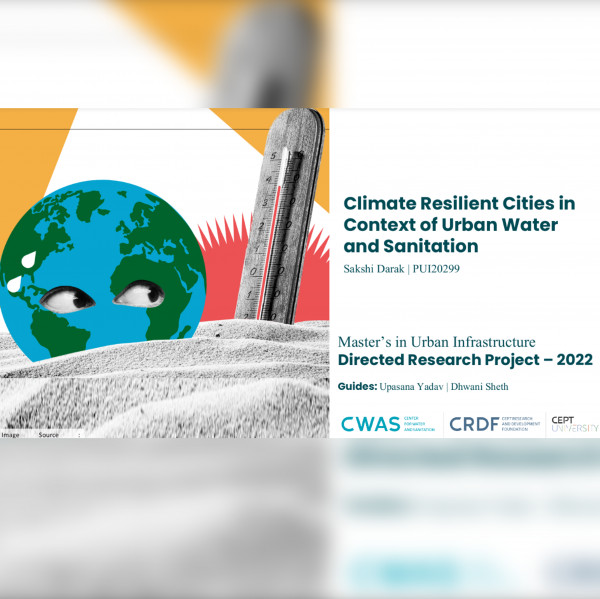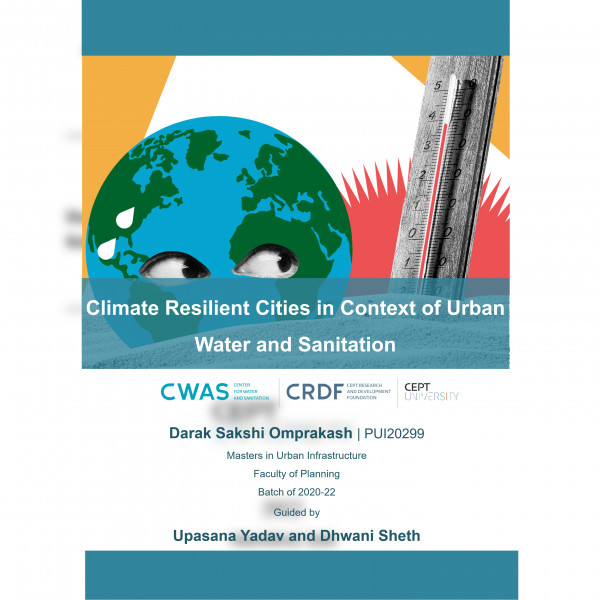Climate Resilient Cities in Context of Urban Water and Sanitation
May 2022
Climate change is long-term shifts in weather patterns and temperatures due to anthropogenic emissions of greenhouse gases that lead to changes in the composition of the atmosphere. This leads to various impacts like rising temperature, increased rainfall, longer dry periods, increased evaporation, and rising sea levels. These impacts create a risk to people, societies, property, infrastructure, livelihood, and the environment. Floods, droughts, and various other extreme weather events disrupt the water supply and sanitation services in urban areas. These disturbances in basic facilities like water and sanitation have larger impacts on the lives of communities and make them more vulnerable to climate change. Hence, it becomes important to study the impacts of climate change on urban water and sanitation and identify the measures and strategies to adapt/ mitigate them. This research focuses on identifying the implications of climate change and preparing a climate action plan from urban water and wastewater perspective for an Indian case city. It involves a literature review of the implications of climate change on the urban water and wastewater sector, an overview of existing urban water and wastewater ad climate policies/programs/ actions at the national and international level, and documentation of best climate resilient practices in this sector. The city of Solapur in Maharashtra is selected as a case study because the droughts in Solapur have intensified in the past decade because of climate change which is leading to water scarcity. The circular closed loop water cycle in Solapur is assessed from a climate change perspective. This circular water cycle includes a source of water, water treatment, water consumption and wastewater generation, wastewater treatment, and wastewater reuse. Based on the findings and issues from the assessment, various strategies that help Solapur attain water security are mentioned. The assessment and proposals are perceived from both adaptation and mitigation viewpoints. The adaptive proposals partially reduce the burden of administrative authority to increase the quantity of water supplied by either tapping local water resources or using alternative sources of water or reducing the water losses. Whereas the mitigative proposals include strategies to reduce GHG emissions from the urban water and wastewater sector.

